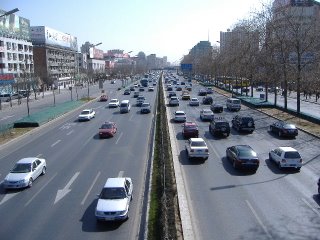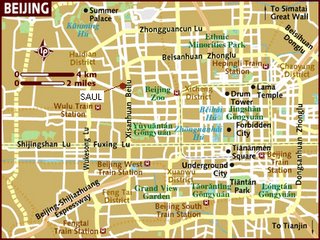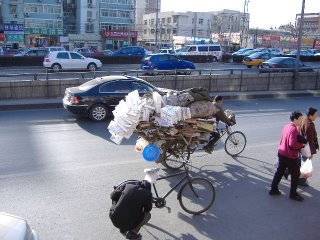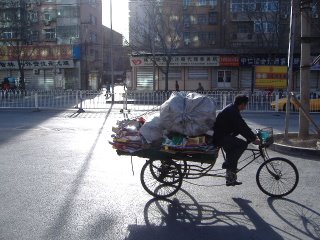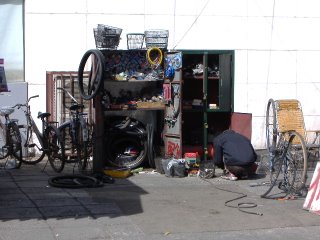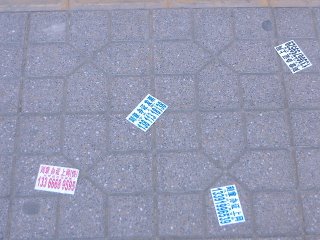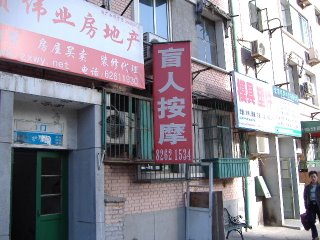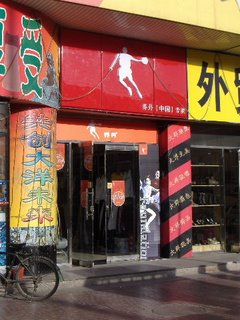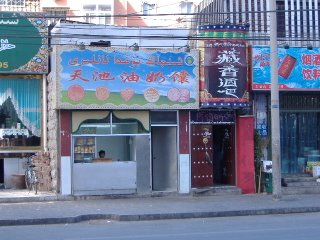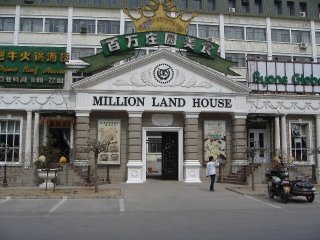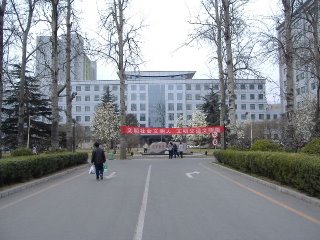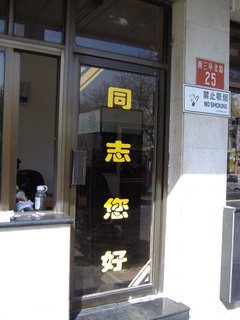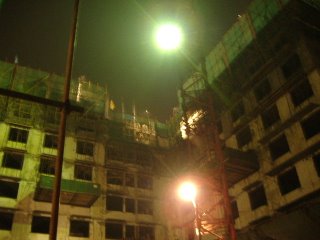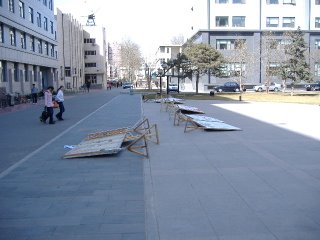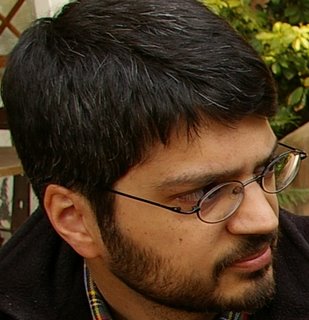Internet control in China
I had actually been planning to post this entry some months ago. But then all of a sudden blogspot sites were unblocked! They had all been blocked since I arrived here in March, and then one day they were all freely available. Why? Who knows? Just a few days ago I was very happy to discover that Wikipedia, which had also been blocked since I arrived here, was also all of a sudden unblocked! How nice! Maybe things are turning around, I thought. Then, just as suddenly, the blogspot blogs were re-blocked. Why? Who knows? Ask the nameless bureaucratic tool who blocked them. (I'm very happy that wikipedia is unblocked, though).
Most of you have heard of the internet censorship here--described by some as "The Great Firewall of China", though it's actually officially called "Golden Shield" (Jindun 金盾). You can read all about it in this wikipedia article. I won't repeat too much of that article, but will try to add a few details.
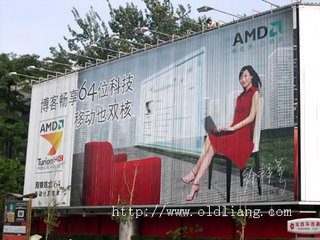
It seems to me that recently there have been more and more academically and even politically oriented blogs, with book reviews, social commentary etc. A few big Chinese companies such as Sina and Tianya act as the hosting sites for the vast majority of Chinese blogs. The government requires Chinese blog companies to police their own sites. If an individual blog has some unacceptable post, then the company can be held responsible, so they hire their own people to review and delete bad blogs. Some foreign blog sites refuse to do that, so when objectionable material crops up, the entire domains are blocked. A major exception is MSN Spaces, which has agreed to abide by Chinese government restrictions, and monitors it's own blog sites (obviously there are MSN people here in China doing that—though I wouldn't put it past Microsoft to hire some tools in Redmond, Washington to delete Chinese blog posts, either). More recently, a regulation has been proposed requiring that people use their own names to register for blogs (though the blogs can still be published anonymously). So their hope is that while you can post and remain anonymous to your audience, the company that hosts you, and thus the guvmn't, will know who you are.
My guess is that the government is most concerned with blocking blogs and sites established by Falun Gong zealots (who I might discuss in another post, unless I decide to censor myself [I don't particularly like them, by the way]), the lamaist Free Tibet crowd, and pro-US democracy activists, all of whom make frequent use of the internet to publish their criticisms. But the government censors are increasingly blocking other sites as well, some of which might seem rather unexpected to those not familiar with the course the Chinese Communist Party has taken in the last 20 or so years. Notably, a number of well known Marxist and leftists sites have been blocked in China during the last year, including the web magazine China and the World (中国与世界), the Cultural Revolution Research Web (中国文革研究网), and even the important forum at Workers and Peasants Heaven and Earth (工农天地). None of these sites are "against the Chinese Communist Party" in the least--in fact, they are unabashedly pro-Maoist and (to varying degrees) anti-capitalist--and that's precisely why they were shut down.
Another very important site that has run into trouble is perhaps the most influential leftist website in China today, the site of the Utopia Bookstore ( 乌有之乡) in Beijing. This site hosts a collection of hundreds of articles by many dozens of left Chinese contributors, some famous, some not, and the editors post new critical essays every day. Earlier in the year it was blocked by government authorities alarmed at the explosion of sympathy for the plight of the migrant worker Wang Binyu 王斌余, who murdered four people in a fit of rage after being repeatedly refused two years of back wages from his corrupt employer which he needed to pay for an operation for his father. Their domain, www.wyzxwyzx.com, was blocked, but then allowed to reopen some time later with a different domain name: www.wyzxsx.com. I asked one of the people associated with the site why they were forced to change the domain name if the government had decided to unblock them. He said that it was the government's way of letting them know who's boss, and that the site could be shut down again if they published anything too critical of the government's policies.
The most informative article on what's behind the recent targeting of leftist websites is an interview by the academic and activist Stephen Philion with one of the editors of the blocked website Chinese Worker (中国工人), a site dedicated to articles by and of interest to one of the groups who has been left in the dust by the current free market "reforms": the working class. As the editor of the site explains, their site was supposedly not blocked because of its content, but because they could not pay an outrageous and prohibitively expensive phony registration fee which the government arbitrarily demanded of them. Eventually the site was set up again outside of China, but the censors in China found it and blocked it again immediately.
Q: Now, why would the Chinese government, a socialist government in name, be concerned about a website run by leftists discussing the kinds of things that were discussed on the China Workers Website?
A: Well, because the government is not making socialism....[The] National People's Congress will be convened soon, and the government knows that workers and farmers' voices will be heard by representatives and might even make way into the speeches made at the Congress. The government doesn't want that -- it actually fears even the possibility of it. So, when the national representatives speak, workers are supposed to keep their mouths shut....If you claim you're the leader of the working class and then you turn around and lay off a huge mass of state-owned enterprise workers, without doing anything to protect the power or interests of the workers' unions, of course you're going to face an angry response from workers....China today is basically controlled by a new capitalist class....You realize at this time some one third of China's business owners are members of the Communist Party! What in the world is this? Who says capitalists can speak for the workers of China?
So how, you might wonder, with blogspot blocked, how am I able to reach my own blog? Well, I have my ways. It turns out that the "Great Firewall of China" is pretty easily circumvented. As a matter of fact, it's completely trivial for anyone who has a pretty good knowledge of the internet. It is, however, annoying and slow. Also, not everyone here knows how to do it, and when the government finds out one method of getting around their firewall, they block it. It's a cat and mouse game.



